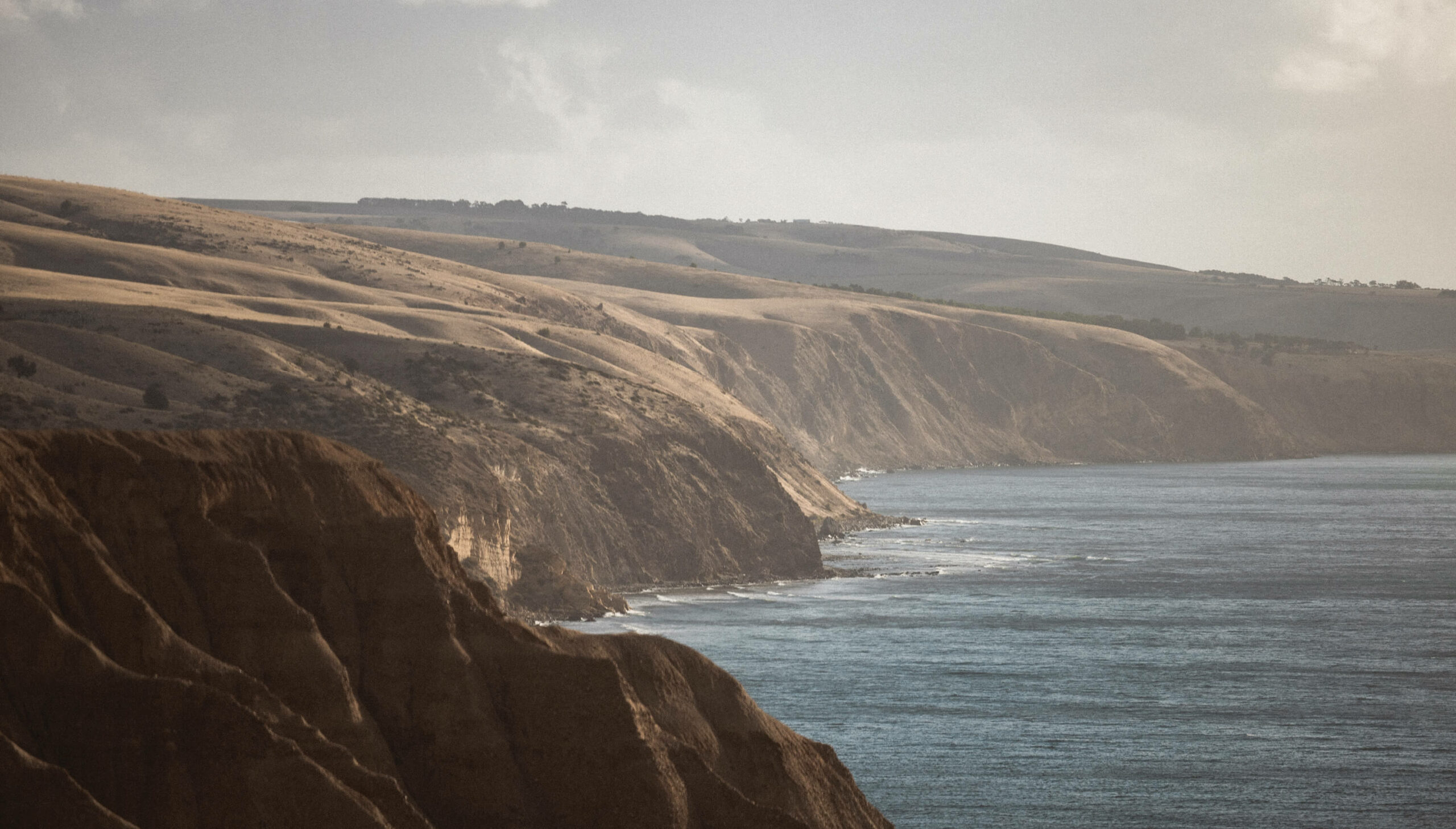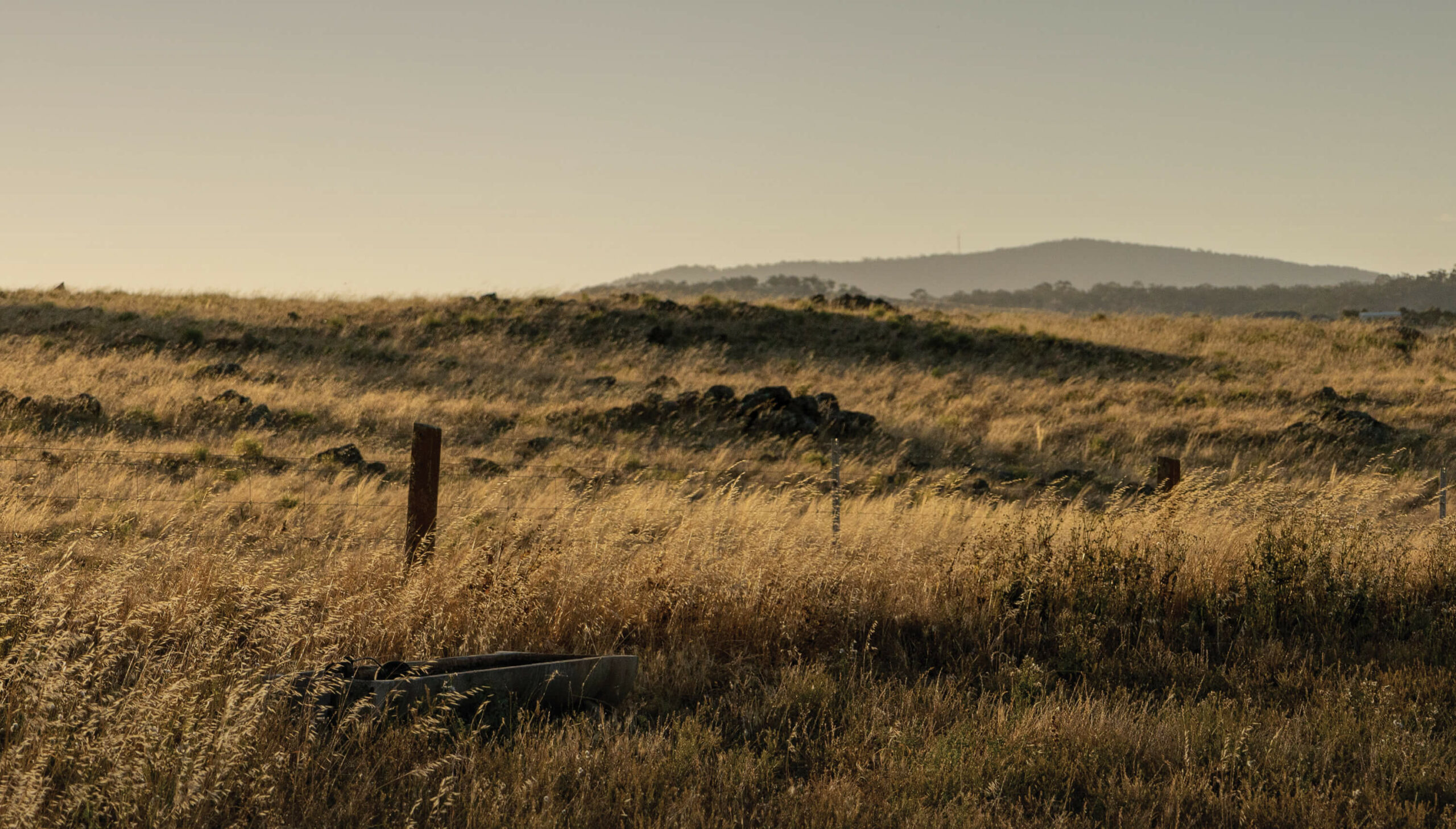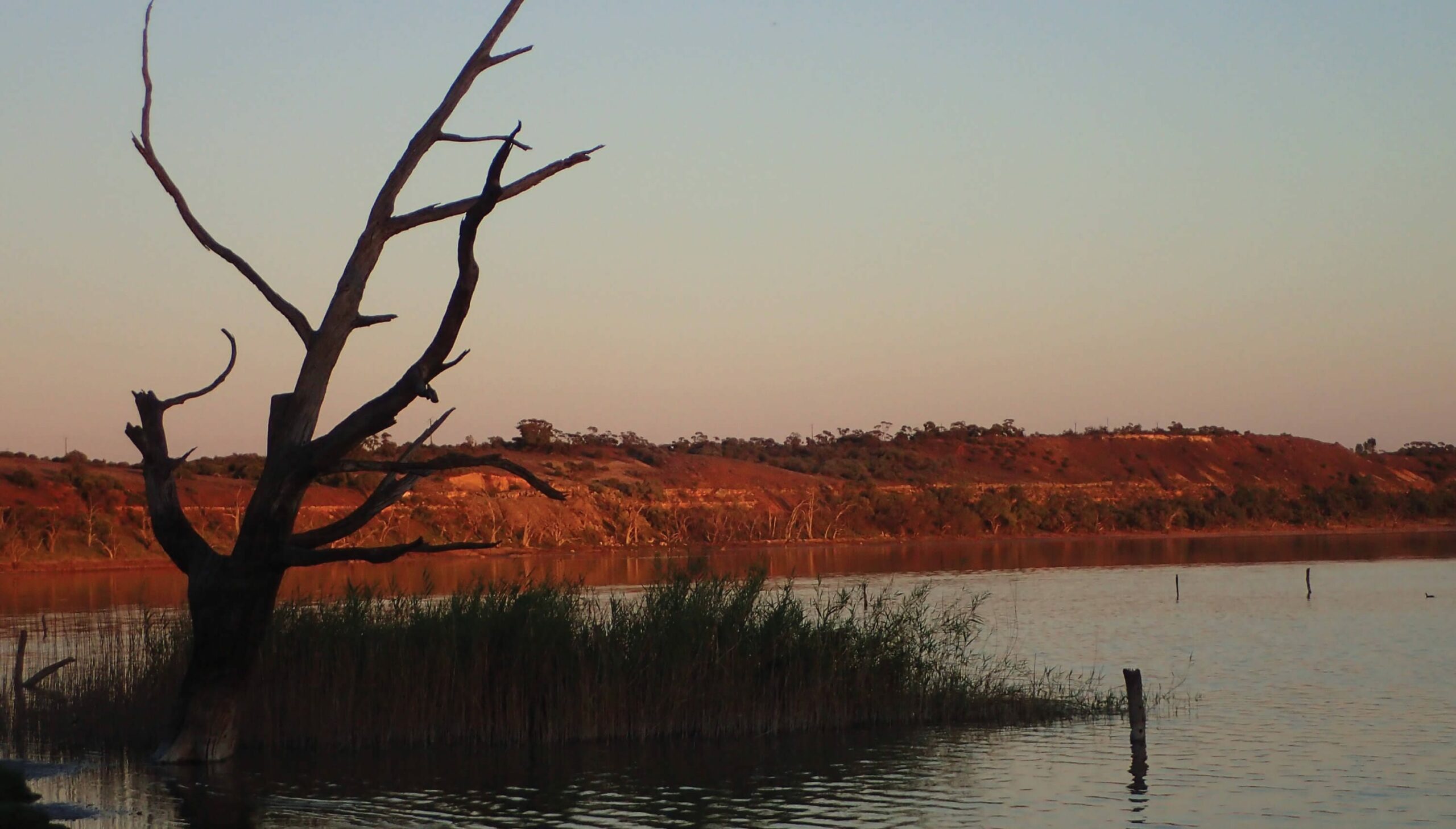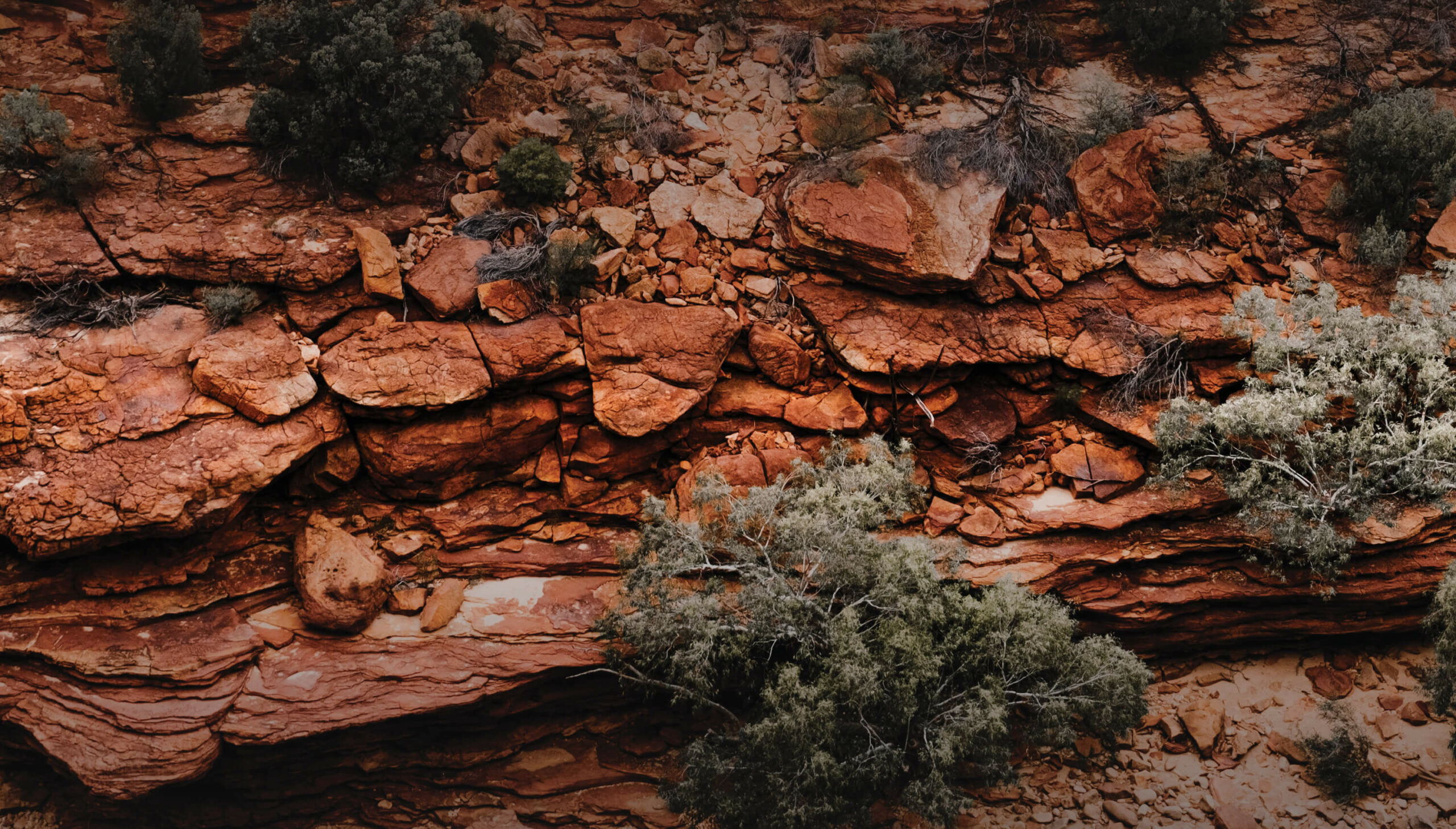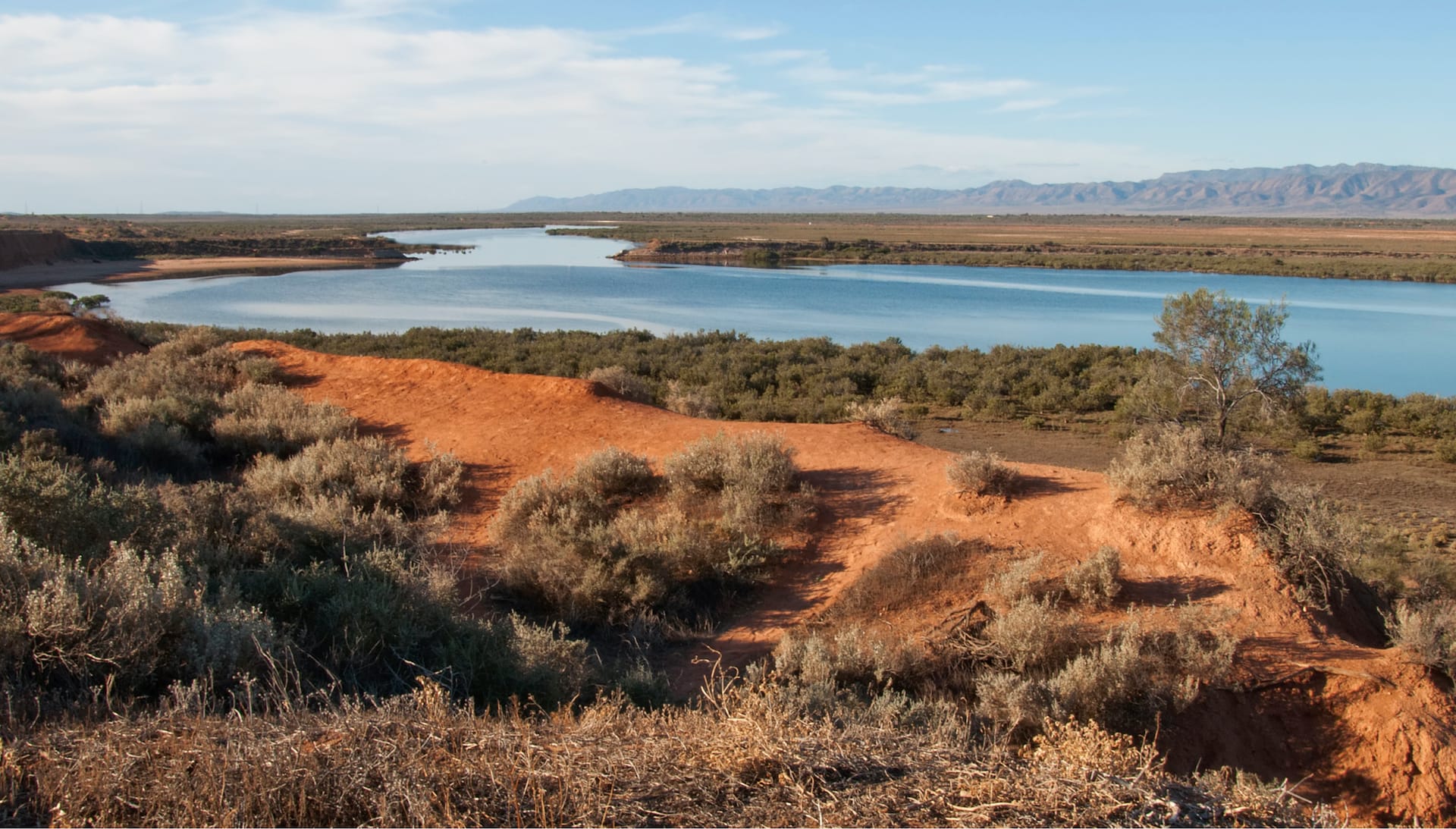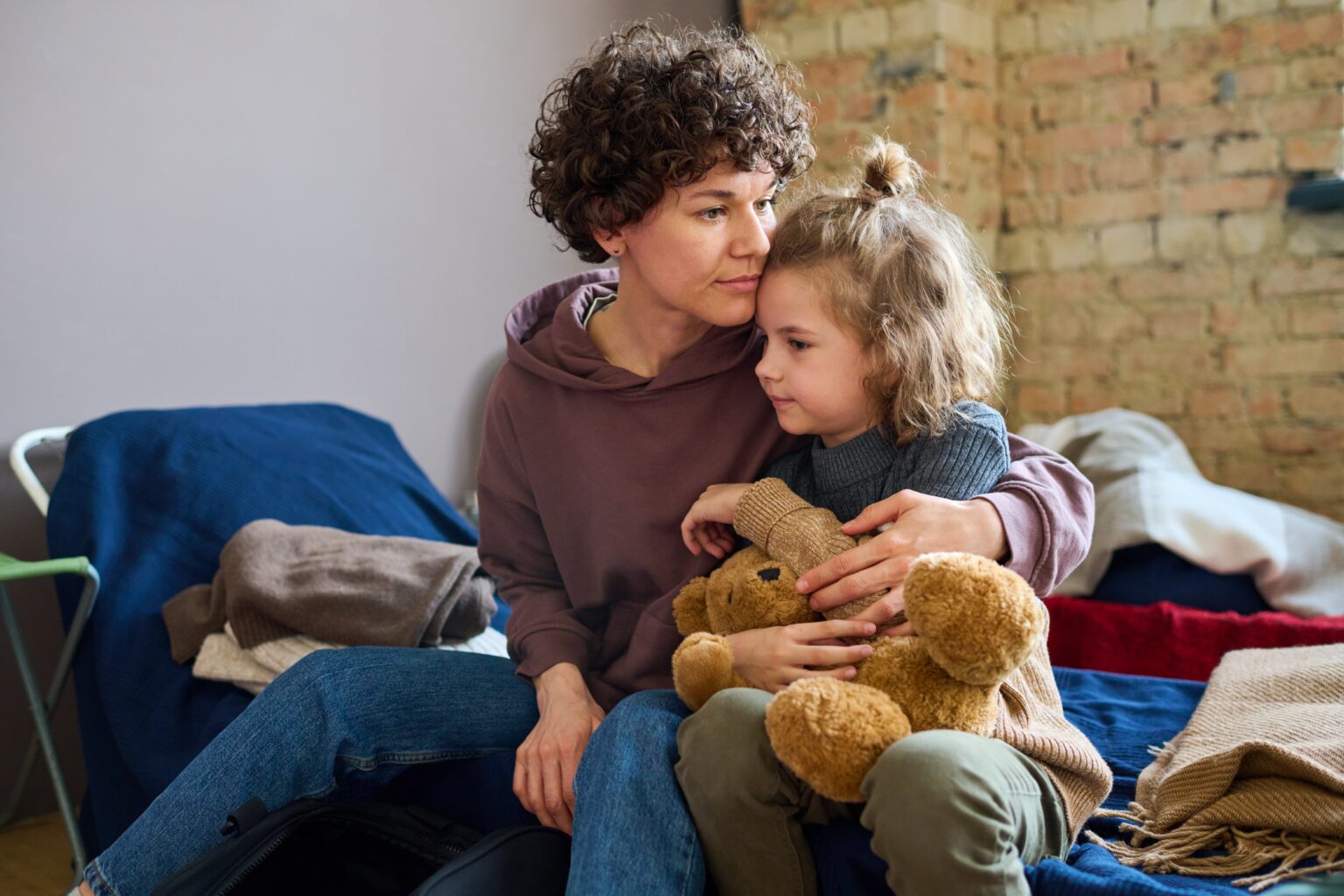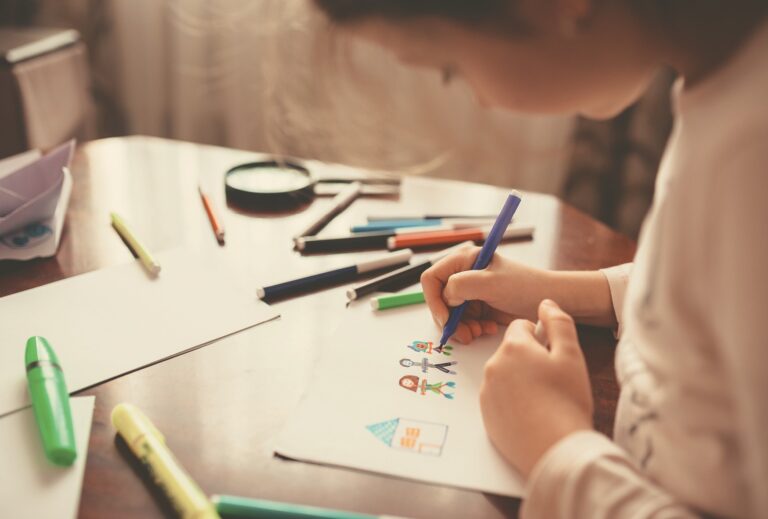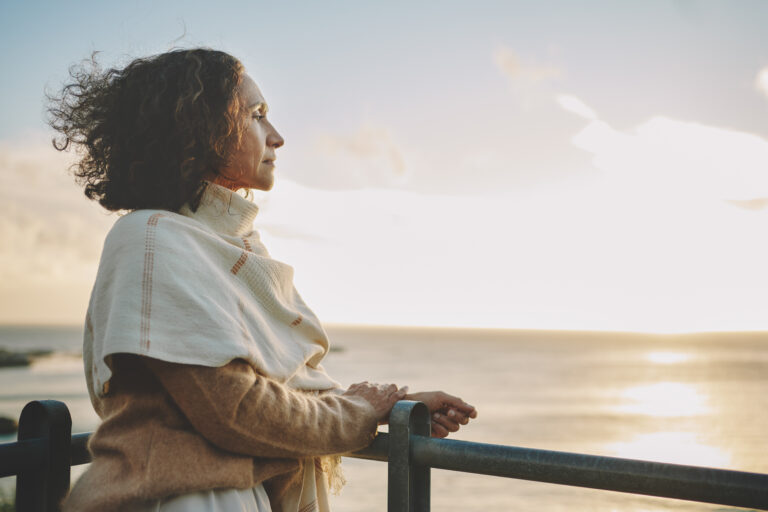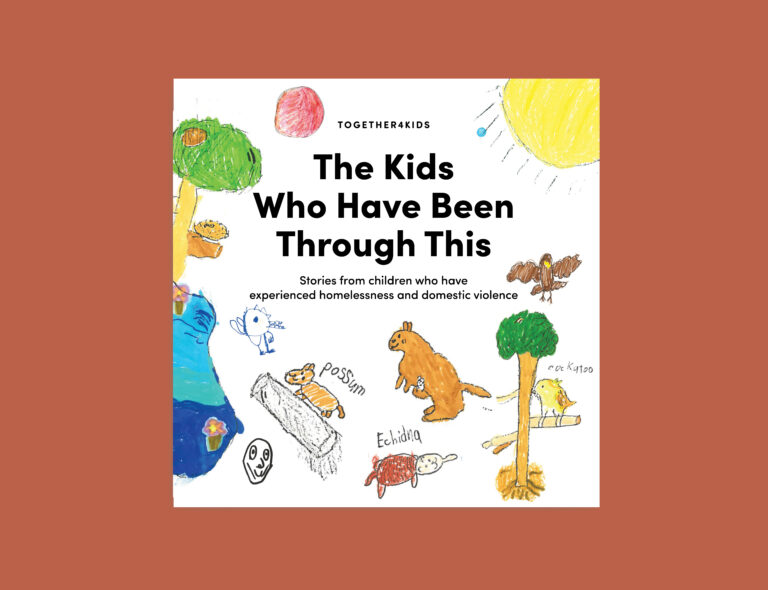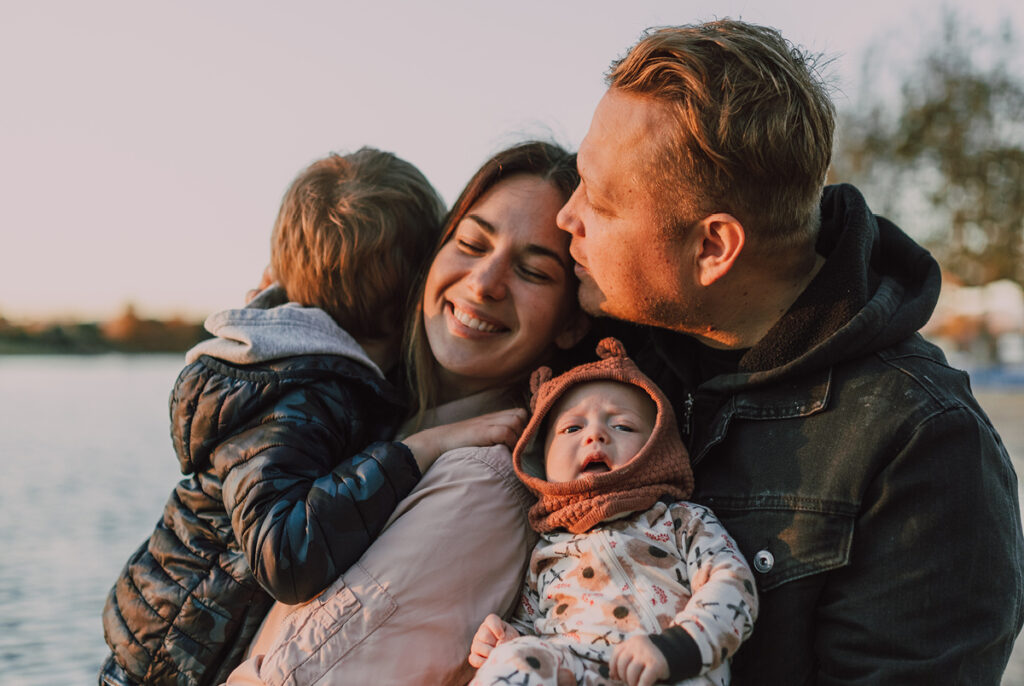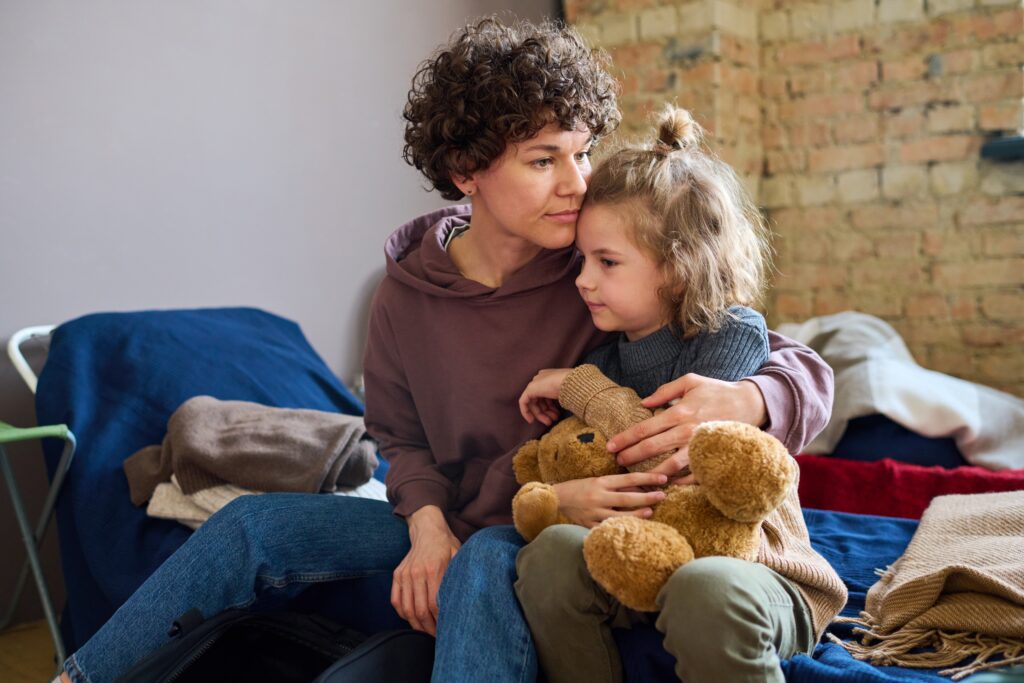
Living in temporary accommodation, whether in a motel or temporary housing, brings unique challenges for families experiencing homelessness. It disrupts normal family routines and lifestyles and there is less space and privacy.
Here are some tips to help you during your stay in temporary accommodation. We hope it helps you to better understand how and why your child may be behaving differently.
Routines are important
While it may not be possible straight away, returning to familiar routines offers comfort and safety to your children. Watching a favourite TV show, enjoying preferred foods, or visiting familiar places can provide comfort and safety.
As space is limited, establish a ‘wind down’ routine with an activity like reading, drawing, or doing puzzles together to indicate when it is a bedtime.
Take care of yourself
Give yourself some time to process what your family is going through. Allowing yourself enough time to process what you are going through will make it easier to help your children make sense of their own complex feelings.
Help your children make sense of what is happening
Children may feel curious or concerned about the life changes. Reassure them that these changes are temporary and encourage them to express their worries.
Let your kids know you’re there for them, providing both physical and emotional support. Create a safe space for them within the accommodation, through your reassurances, familiar toys, sticking to familiar activities and routines where possible.
Some children may believe they caused family changes. It’s important to let them know it’s not their fault, and that you are there to support them.
What you may see from children living in temporary accommodation
Age regression
Children might revert to old habits like thumb sucking, wetting pants, talking differently, or wanting to be with their parents all the time, due to big changes. These are common reactions. Respond calmly and kindly; your child may feel shy or worried sharing these behaviours.
Sleep disruption and feeling sick
Children may struggle with sleep, have stomach aches or headaches, especially if they’re too young to express feelings. To help, read stories, play music, cuddle, and offer comfort foods. They may need kind words and hugs for reassurance.
Big behaviours
During significant changes, children may display intense feelings and behaviours. These could manifest as anger and outbursts due to worries and confusion.
Stay calm when your child has strong emotions. Acknowledge their feelings and reassure them of your support and love to enhance their sense of safety.
When your child has strong feelings, they might not express their needs clearly. Check in with them later to ask how you can help next time any strong feelings arise.
Suggestion activities that can help calm the feelings. Include activities like deep breaths, a comforting toy, sensory toys such as play-dough or a stress ball, or activities like pushing against a sturdy wall to release tension. Model calm responses and practice your strategies as this will help support your child to manage their emotions.
Withdrawing
Some children won’t express their feelings verbally or physically; they may be quiet, sleep more, present with stomach aches, or seem zoned out.
Getting active can be useful for children who are withdrawn; take a walk or spend time outdoors. Provide shared activities like drawing or writing or reading with them to help them express feelings if words are challenging.
It is important to remember...
Every child is different. Children react uniquely to events, even if they share the same experiences. Some may become quieter or withdrawn, while others may act out.
Regularly check in with your children and reassure them that they can come to you for support.
How to get support
Relationships Australia SA offers a range of support services for families and parents. For more resources for children and parents visit Together 4 Kids. For local support services visit Adults Supporting Kids (ASK). Visit Crisis Help + Support to find other trusted organisations that offer support for adults, children, and families.
Service Acknowledgment
The Child Focused Support Service (Together4Kids) is provided by Relationships Australia SA and funded by the Government of South Australia, Department of Human Services, Housing Authority.
If you feel like you need extra support Relationships Australia SA also offers a range of services for families and children and youth that can help. Together4Kids provides therapeutic support to children aged 0–12 to help them: overcome trauma, strengthen children’s ability to deal with difficult feelings and reactions, and adjust to family changes and disruptions. Get in touch with us today.
